

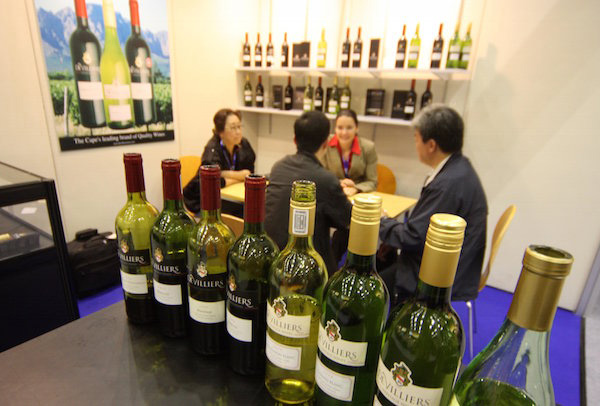 |
| Chinese businessmen talk with South African wine producers at an exhibition held in China. (Picture: XINHUA) |
The competition for imported wine in the Chinese market is going to get fiercer. China recently signed agreements to start cutting tariffs on Australian and Chilean wines, which has had a direct impact on the growth of the imported wines in volume in 2015. As a result the increase has since reached 40% of total wine imports.
Wine is also the fastest growing export product from SA to China. In the first half of 2015, SA doubled its Chinese market share from 2% to 4% in volume, according to Chinese customs statistics. China is SA’s sixth- largest export market for pack- aged wines by volume and the largest in Asia, accounting for about 8.99-million litres for the year ending September 2015.
Western Cape Premier Helen Zille attended two big international food and wine shows in 2015 in Shanghai to explore trade, tourism and investment for Western Cape exporters. There were 3,314 primary wine producers in the province in 2014, the most in the country, according to her 2015 budget speech. She represented 38 agribusinesses that participated in the Food and Hotel China 2015 and ProWine China 2015 exhibitions.
Jan van Riebeeck, the first governor of the Cape, planted a vineyard in 1655 and, on February 2 1659 the first wine was made from Cape grapes. This led to the planting of vines on a larger scale at Roschheuvel, known today as Bishopscourt. Van Riebeeck encouraged farmers to plant vineyards although initially they were reluctant.
A survey published in the January 2015 SA Wine Industry Information & Systems (SAWIS) found that in terms of world wine production, SA ranks number seven in overall volume production of wine and produces 4.2% of the world’s wine (2014).
The study also concluded that of the R36.1bn gross domestic product (GDP) contributed by the wine industry to the regional economy, about R19.3bn eventually would remain in the Western Cape to the benefit of its communities.
Growth in contribution to the GDP has been at least 10% per annum since 2003.
According to SAWIS, exports of natural (ienonfortified) pack- aged wines for the 2015 calendar year reached 167.5-million litres, a decrease of 3.4% on the previous year. Red wine exports increased by 1.5% to account for 41.4% of all natural wines exported.
The opportunity in the wine industry has also caught Chinese investors’ attention.
Yangzhou-based Perfect China made the Asian country’s first investment in SA’s wine industry in 2013, acquiring the Val de Vie estate in the Western Cape in a deal expected to boost exports of local wine to the Far East.
Perfect China, through its 51% shareholding in Perfect Wines of South Africa, pur- chased the 25-hectare wine farm between Paarl and Franschhoek that includes 21 hectares of vine- yards, a manor house and a wine cellar.
Perfect Wines of South Africa was established as a joint venture between Hein Koegelen- berg from Leopard’s Leap and La Motte and Perfect China in 2011.
“The Chinese wine market is very important to our industry, and this first Chinese investment in the South African Winelands is a clear indication of their inter- est in our wines and can lead the way to a bright future for the export of SA wine to the East,” said Koegelenberg, chairperson of Perfect Wines of South Africa, in 2013.
Koegelenberg took the advice of his Chinese partner, who told him to make the labels look French. So in 2011 “L’Huguenot” was born, a South African brand for China only, according to The Economist.
The name “L’Huguenot” is a tribute to the early French Protestant immigrants to SA. The Dutch in SA had almost no wine tradition and it was only after the French Huguenots settled at the Cape between 1680 and 1690 that the wine industry began to flourish. As religious refugees, the Huguenots had little money and made do with the bare essentials. They also had to adapt their established wine- making techniques to new conditions. But with time their culture and skills left a permanent impression on the wine industry and on life in the Cape.
More Chinese investors have shown interest in buying wineries and vineyards in SA. In 2015, a Chinese businessman bought a wine estate just 18km from Cape Town. The wine estate has manor, winery, vineyard and its own wine brands.
On the other hand, South African producers are also actively expanding in China. Dis- tell, a leading South African- based liquor company, is expanding its presence in the East with the acquisition of a 60% share in fast-growing liquor distribution company CJ Wines & Spirits in 2012. Privately owned, CJ is based in Zhongshan in the Pearl Valley Delta of Guan- dong Province and has operations in Hong Kong, Macau and Mainland China.
According to Distell Group MD, Jan Scannell, the plan is to capitalise on the strong market potential of South China and then address markets such as Beijing, Shanghai and Chengdu. He said that the priority for Dis- tell China was to focus on Bisquit and Amarula before considering other brands within the company’s portfolio for distribution.
“The recent expansion of Dis- tell into China creates an opportunity to accelerate the excellent progress achieved so far, and build on its existing presence into this lucrative market, ” said Deputy President Cyril Ramaphosa on his visit to China in 2015.
(The story was originally published on Business Day on February 29th, 2016.)
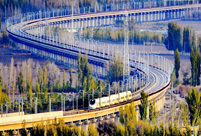 China has world's largest high-speed rail network
China has world's largest high-speed rail network Top beauties in Chinese provinces
Top beauties in Chinese provinces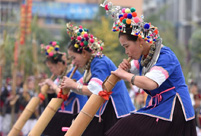 600 people attend Lusheng playing contest in S China
600 people attend Lusheng playing contest in S China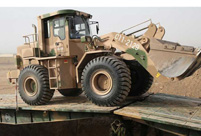 Engineer troop builds bridge in real combat conditions
Engineer troop builds bridge in real combat conditions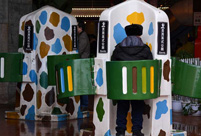 You can urinate in public in Chongqing
You can urinate in public in Chongqing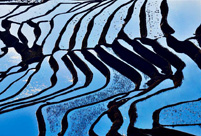 Rice terrace scenery in southwest China's Yunnan
Rice terrace scenery in southwest China's Yunnan 2016 Miss Chinatown USA pageant held in San Francisco
2016 Miss Chinatown USA pageant held in San Francisco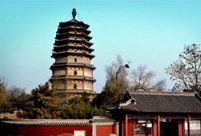 Ancient pagodas across China
Ancient pagodas across China Wedding dress show up in the air
Wedding dress show up in the air Top 20 hottest women in the world in 2014
Top 20 hottest women in the world in 2014 Top 10 hardest languages to learn
Top 10 hardest languages to learn 10 Chinese female stars with most beautiful faces
10 Chinese female stars with most beautiful faces China’s Top 10 Unique Bridges, Highways and Roads
China’s Top 10 Unique Bridges, Highways and Roads Harris is making waves in S.China Sea
Harris is making waves in S.China Sea With new plant, Airbus seeks to secure China market share
With new plant, Airbus seeks to secure China market share Chinese sound off on America’s loudest presidential hopeful
Chinese sound off on America’s loudest presidential hopeful 40 years after Cultural Revolution, repentance of Red Guards is still rare
40 years after Cultural Revolution, repentance of Red Guards is still rareDay|Week